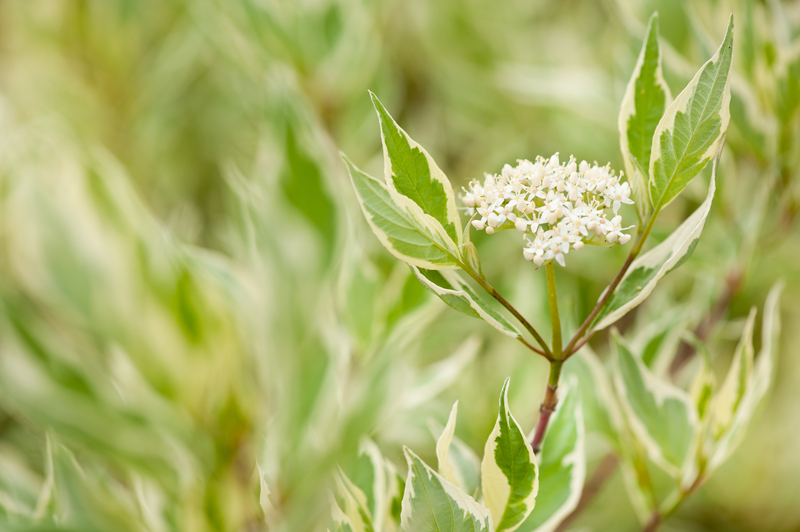Creative Solutions to Eradicate Weed Issues
Posted on 17/09/2025
Creative Solutions to Eradicate Weed Issues: A Comprehensive Guide
Weeds are the silent invaders of gardens, agricultural landscapes, and urban green spaces. No matter how much effort you put into nurturing your plants, persistent weed issues can undermine productivity, reduce aesthetic value, and increase maintenance costs. While traditional methods such as manual pulling, chemical herbicides, and tilling are widely used, modern gardeners and farmers are increasingly seeking innovative and sustainable strategies to eradicate weeds effectively.
Understanding the Challenges Posed by Weeds
To develop creative solutions for weed control, it's vital to recognize the unique challenges they present. Weeds are not only capable of rapid reproduction, but they also possess the resilience to thrive in diverse environments. These unwanted plants compete with desired flora for essential resources such as water, sunlight, and nutrients, ultimately compromising crop yield and garden health.
- Rapid Reproduction: One weed can produce thousands of seeds annually.
- Resource Competition: Weeds overshadow and outcompete desirable plants.
- Pest Hosting: They can harbor pests and diseases detrimental to other plants.
- Adaptability: Some species become increasingly tolerant to common chemicals and practices.
Given these complications, adopting creative and integrated solutions for eradicating weed issues becomes essential.

Eco-Friendly and Innovative Weed Management Solutions
Traditional herbicides and tilling methods can harm the environment, reduce biodiversity, and even contribute to the evolution of herbicide-resistant weeds. This is why gardeners, landscapers, and farmers are turning to creative ways to get rid of weeds that are both effective and environmentally responsible.
1. Mulching with Unconventional Materials
Mulching is not a new concept, but using innovative mulch materials can greatly improve weed suppression while adding nutrients and visual appeal. Traditional organic mulches like straw or bark chips are excellent, but here are some creative options:
- Cardboard and Newspaper: Laying cardboard or thick newspaper under mulch blocks sunlight from weed seeds while retaining soil moisture. Worms naturally break down these materials, enriching the soil.
- Cocoa Hulls and Pine Needles: These organic materials suppress weeds, look attractive, and break down slowly, providing long-term control.
- Living Mulch: Grow low-growing groundcovers between garden rows to create a living barrier against weeds while adding natural beauty.
2. Solarization: Harnessing the Power of the Sun
Soil solarization is a powerful, chemical-free solution for weed eradication. In this method, you cover the affected soil with clear plastic during the hottest months of the year. Sunlight heats the soil to temperatures that kill weed seeds, pathogens, and pests. Here's how you can use this strategy:
- Clear the area and water it thoroughly to help heat penetrate deeper.
- Cover soil tightly with clear, UV-stable plastic sheeting, anchoring the edges to prevent heat loss.
- Leave for 4-6 weeks during peak sun hours to maximize effectiveness.
- Remove plastic and prepare soil for planting, virtually weed-free.
*Solarization* is particularly useful for preparing new garden beds or renovating heavily infested plots.
3. Boiling Water and Flame Weeding
For small-scale or spot treatments, thermal weed eradication solutions are both innovative and sustainable. Boiling water poured directly onto weeds causes plant tissues to rupture, resulting in quick death. For larger areas or between paving stones, flame weeders scorch plants efficiently.
- No chemicals required!
- Excellent for driveways, sidewalks, and raised beds.
- Suitable for managing persistent weed issues in tight spaces.
Note: Always exercise caution with fire, especially during dry weather or in areas where combustibles are present.
4. Soil-Friendly Weed Smothering Techniques
This highly effective method involves excluding light and oxygen, which weeds need to thrive. By using tarps (a method called occultation) or biodegradable black plastic, you can:
- Suppress weed germination over large garden areas.
- Improve soil health by promoting decomposition of weed residue beneath the tarp.
- Prepare new planting areas easily, keeping soil structure intact.
For a more attractive alternative, consider planting dense cover crops such as clover or rye. These not only block sunlight from reaching weed seeds but also enrich the soil when mowed and incorporated as green manure.
Biological and Organic Strategies to Control Weeds
Creative weed issue control goes beyond just stopping growth; it's about creating an ecosystem approach to balance weed populations naturally. Here are some innovative biological solutions used worldwide:
1. Grazing Animals as Weed Controllers
Employing animals such as goats, sheep, or even geese as part of your weed management program can be incredibly effective, especially in large open areas. These animals consume invasive plants and keep weed growth under check without harming established trees or crops.
- Goats are known for their appetite for broadleaf weeds and thick brush.
- Sheep efficiently graze down tender weeds in agricultural fields and orchards.
- Geese feed on grassy weeds and are often used to clear vineyard rows or orchards.
This natural weed eradication solution reduces the need for chemicals and labors simultaneously improves soil fertility through manure deposition.
2. Competitive Planting and Intercropping
Instead of leaving soil bare between plants, strategically interplanting crops or ornamental varieties creates a living shield against weed establishment. Consider:
- Companion Planting: Plant marigolds, nasturtiums, or dense culinary herbs to occupy ground space and repel weed growth.
- Intercropping: Alternate rows of fast-growing, ground-hugging crops (such as beans or squash) with main crops to suppress weeds naturally.
This technique not only solves weed issues creatively, but also increases your garden or farm's productivity and resilience to pests.
3. Application of Organic Vinegar and Natural Herbicides
Homemade weed killers have gained popularity as non-toxic alternatives to traditional herbicides. DIY organic herbicides can be made with readily available ingredients like household vinegar, salt, and a small amount of dish soap for adhesion. *When applied in sunlight, these mixtures can desiccate weed foliage quickly but must be used with care around desired plants as they are non-selective.*
High-Tech and Digital Solutions for Getting Rid of Weeds
Modern technology has also played a role in developing creative weed eradication tactics. Robotics, artificial intelligence, and data analysis are increasingly used to manage weed populations more precisely and sustainably.
1. Robotic Weeders and Smart Sprayers
Robots equipped with machine vision can identify and physically remove or destroy weeds with minimal disruption to crops. Smart sprayer systems use AI to target only weeds, reducing drastically the volume of chemical herbicides needed. This tech is now used on large-scale commercial farms and is becoming more accessible for home gardeners.
2. Drones for Aerial Weed Mapping
Unmanned aerial vehicles (UAVs) are revolutionizing large-scale weed surveillance and management. Drones capture detailed images allowing farmers to map infestation hotspots, monitor changing weed populations, and plan precise interventions, which saves time and resources.
3. Ultrasonic and Laser Weed Killers
Research is rapidly progressing into the use of focused ultrasound waves and laser beams to damage or kill weed plants at the cellular level. These tools offer incredible potential for the future of weed eradication solutions as they do not harm the environment and leave chemical residues.
Combining Strategies: The Integrated Weed Management Approach
Integrated Weed Management (IWM) is the most holistic and effective strategy. It combines several creative weed eradication methods into a tailored plan suited to your specific environment and crop or landscape needs. Here's how to develop an IWM plan:
- Identify key problem weeds and monitor infestation regularly.
- Combine cultural, mechanical, biological, and digital techniques for maximum control.
- Rotate crops to break weed reproductive cycles.
- Adapt interventions each season based on results and local environmental conditions.
This innovative, multi-faceted approach ensures long-term success and sustainability.
Prevention: The Ultimate Weed Solution
While combatting existing weed issues is vital, prevention is always more effective and less labor-intensive. Adopt these preventive techniques:
- Maintain healthy, dense plant cover to outcompete new weeds.
- Avoid soil disturbance which brings dormant weed seeds to the surface.
- Inspect new plants and soil for weed seeds before planting.
- Clean tools and equipment regularly to prevent seed spread.

The Future of Weed Management: Creativity and Sustainability
New challenges demand new solutions for eradicating weeds. As climate change alters growing conditions and weeds continue to adapt, the role of creativity, research, and community-based action becomes even more critical. Home gardeners, commercial farmers, and landscapers alike must embrace a combination of traditional wisdom and innovative weed management strategies that protect both the environment and productivity.
From mulching with recycled materials and strategic planting designs, to deploying AI-driven weed robots and integrating animal grazers, these creative ways to eradicate weed issues are shaping a greener, weed-free future.
Conclusion
Eradicating weeds is no longer a war waged only with herbicides and hoes. Today, an arsenal of eco-friendly, technological, and biological solutions are available to control weed infestations creatively and sustainably. By investing in innovation and committing to prevention, you can enjoy healthy, vibrant gardens, productive fields, and beautiful landscapes--all without the constant headache of invasive weed problems.
Remember: creative weed management is about working with nature, harnessing the latest technology, and thinking outside the box. With these comprehensive strategies, you'll stay one step ahead of weeds, ensuring your spaces remain healthy and flourishing for years to come.
Latest Posts
The Ultimate Guide to Refreshing a Neglected Garden
Relax and Unwind: Zen Gardens for Calm Outdoor Spaces
Creative Solutions to Eradicate Weed Issues

